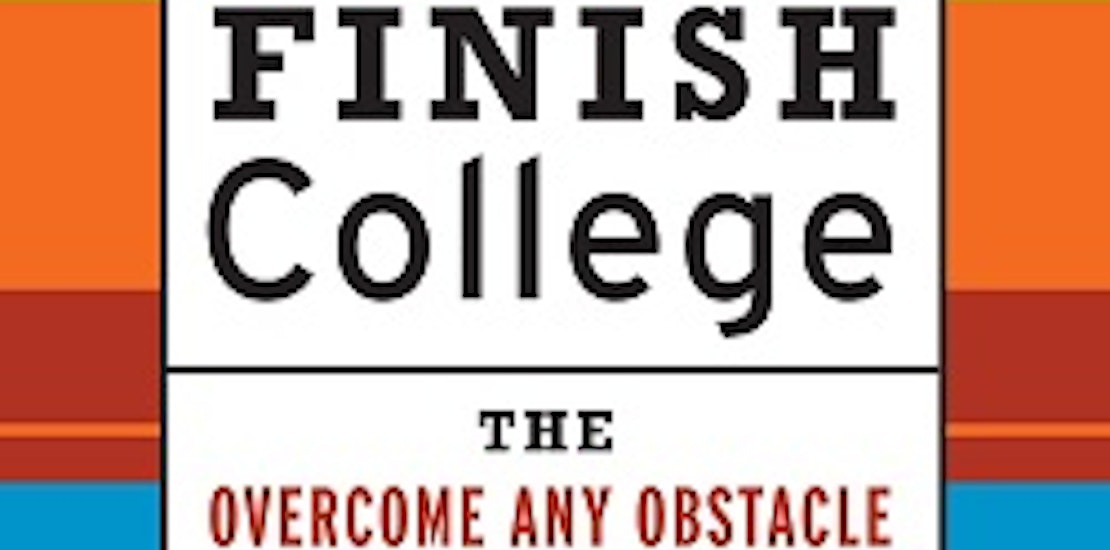The Go-To Guide To Graduating

To those who are familiar with the college experience, you are probably also aware of how daunting the entire process of attaining your degree can be. There are so many important questions and obstacles to get through before you’re handed that diploma and sent on your way. Luckily, we have someone like Marcia Cantarella that knows the ropes and can answer the tough questions college students have.
Educational consultant, Marcia Cantarella’s new book I Can Finish College: The Overcome Any Obstacle And Get Your Degree Guide is something every college student can use to answer a myriad of questions like how they will finance their education, what courses they should be taking, how to choose a major, and many more. And if you can’t find the answer to a question you would like to ask, Cantarella encourages students to contact her through her website and she promises to answer them directly.
According to her website, Cantarella has worked with many schools as an educational consultant. She has also taught courses in business, money and work at NYU, Princeton, and Hunter College. She has had much success with helping minorities and women apply for and receive fellowships. Cantarella points out one of her most pertinent qualifications for writing a guide to getting your college degree when she says, “Most important to me is that I remain in contact with a great many of the students I have served over the years and many of their stories are part of this book.”
SheSpeaks is lucky enough to have Marcia Cantarella offer her time as a guest blogger to answer some questions you might have about college. To purchase a copy of Cantarella’s book you can visit http://icanfinishcollege.com/Home_Page.html .
Please use the comment section below to add a question for the author and check back soon to see if yours was chosen.
Make a Comment
 by
mycantarella | New York, NY
by
mycantarella | New York, NYI agree with you that maintaining standards is important to motivate students. It helps if you make a point of connecting with your faculty as they can reward the more diligent of you with honors, mentorship, scholarship opportunities and recognition that the less engaged will not get. The book I have written is meant to be picked up and put down and many of the resources sited in in are online via its website, However the main goal is to get student over just the hurdle you describe--that of fear of looking dumb and so not asking the questions or seeking the resources needed.
 by
eyermaer | Cincinnati, OH
by
eyermaer | Cincinnati, OHI am currently a fifth year college student graduating this June [YAY]- and I can honestly say that the biggest issue I've had with making it through college is motivation. It is very disheartening to see students who do not complete their work on time or in an appropriate manner pass the same classes as you and graduate with the same degree as you. I would love to see my college crack down on this- We have rules that say if you miss three classes unexcused you "fail"... and we all know its a joke. No one has ever failed for any reason, including not turning in final assignments. I think Maria's book is a great concept- but I would suggest playing up the website aspect of it. I can't see most college students picking up a self-help book to guide them, but it would be very easy to google for a website that could help. [I think this has a lot to do with privacy/embarrassment of not knowing where you're going or what to do]. We all want to seem like we got it together :)
 by
mycantarella | New York, NY
by
mycantarella | New York, NYThere are a few high end schools like Mount Holyoke which have dropped the SAT as a requirement. In the case of a school like that you need not worry about reputation and should know that they have refined a process to look at factors other than tests to select students who will thrive there. In the case of schools that are for-profit, they may not be competitive-- and they are really lookking for the profit in enrollees. Then I would be careful about what they will deliver to you. They are very much under scrutiny now. While still not a good barometer of student capability, the tests are still widely used on competitive campuses. If there is a choice and the scores are good (above the average score for that campus) and will be an asset to the application then submit them.
 by
Gloriah | Rye, NY
by
Gloriah | Rye, NYWhat is your view on colleges where test scores are not required? Should students still submit the scores when they have a choice?
 by
mycantarella | New York, NY
by
mycantarella | New York, NYPart of it involves planning in advance and research about the schools and scholarships and financial aid you or your child may be eligible for. You want to not waste money by being in the wrong school. You should be saving early. Public colleges and universities can be a great value. You can go to a two year school and then transfer to a more expensive four year to save money and also be really college ready. The first two chapters of I CAN Finish College go into these issues in depth. Marcia Cantarella
 by
evielee | New York, NY
by
evielee | New York, NYCollege is so expensive. What's the best way to make it work financially?











_01252024061712.jpg?max-w=432&max-h=220&fit=crop&auto=format)

_10242023164832.jpg?max-w=432&max-h=220&fit=crop&auto=format)


_08172023152001.jpg?max-w=432&max-h=220&fit=crop&auto=format)


 (6)_07082023175312.jpg?max-w=432&max-h=220&fit=crop&auto=format)
 (1)_05192023144508.jpg?max-w=432&max-h=220&fit=crop&auto=format)
